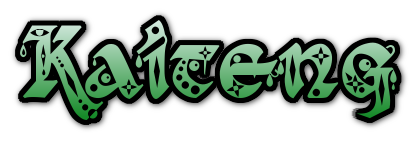Videos
At least for now, only translations.
Nälkämaan laulu (Song of the Hunger Land), Anthem of Kainuu (Finland)
LYRICS EXPLANATION AND TRANSLATOR'S NOTES
Finnish regions have their own anthems, and this is the anthem of the Kainuu region. Made in 1911, it was originally written as a poem by Ilmari Kianto with a melody composed by Oskar Merikanto, and it has since become one of the most sung regional anthems in Finland. The lyrics reflect the time when they were written, so I will try to explain them here. I'm sure I don't have to explain things such as nature descriptions; Kainuu has rapids, forest, lakes etc. In the top right corner is the flag of Kainuu.
0:48: Hills (vaarat): Vaara is actually a Finnish word meaning a fell with trees on it. So it is definitely bigger than your average little hill, more like fell sized; however, "a fell" in English seems to mean one without trees on top, so I translated this as "hill".
1:57: May our cabins hide: When Kainuu was populated by Finns in the late 1500s, the villages were constantly attacked by Karelians from the east who killed every man, woman and child they could find. This is why people built hidden cabins in the middle of forests and away from the villages so when there was an attack, they could go hide there and hopefully not be found by the attackers. (For those more interested, this was a part of a conflict known as the Russo-Swedish War of 1590–1595.)
2:08: Pillagers, bandits: Refers to the same thing as explained above, also just generally there were raiders in the region, even in later periods.
2:14: Vigour (tarmo): I found this word a bit difficult to translate. It's a bit like sisu... with tarmo, you push forward and keep your chin up.
3:06 Belief (maausko): The original text by Kianto said uskonto uus ("a new religion"). It was changed to things such as uskomus and maausko (so more like "belief"). I guess the people singing the song didn't want to sing about getting a new religion, hahah.
3:10: Defeat magic and conservativeness: Okay so I feel like this part really needs an explanation. Kainuu people were traditionally, and indeed 100 years ago as well, extremely superstitious. They believed in magic, omens, folk healing, future telling... you name it! People were even likely to believe their traditional beliefs (they were centuries old, after all) over science. Learned people were pretty annoyed at this at times. "Conservativeness" here doesn't mean how we understand it nowadays. It's more like the text asking people, please stop believing in superstitions and believe in facts instead.
3:23: Farmer and "riihi": Most Kainuu people at the time were poor farmers. "Riihi" is a northern European style grain drying and threshing cabin; it doesn't have a term in English.
https://en.wiktionary.org/wiki/riihi
3:33: Your poise, honour, work: "Ryhti" I translated as poise... it means standing up straight with good posture, as well as having an attitude which is akin to good posture. Some places write the lyrics as "ryhtisi, kunniatyö" = "your poise, your honourable work".
3:46: Cowards go behind oceans: This is a reference to the people who would move to other countries, mainly the USA, in search of a better life. Kianto did not like these people, thinking of them as cowards for leaving in search of wealth instead of staying to work hard and build their home to be a better place to live. Indeed, Kainuu in the 2020s is as technologically advanced as any other part of Finland, and there haven't been any famines or raids since WWII. It does not carry the reputation of poverty as it used to 100 years earlier. Clearly staying and building their land anew worked for the Kainuu people. You can find this attitude, "work hard and improve your homeland", quite common in Finland even today.
The Princess and the Frog - New Orleansissa (Down in New Orleans (Finnish))
The Lorax - En paha olla voi (How Bad Can I Be? (Finnish))
The Lorax - Viimeinen truffulapuu (The Last Truffula Tree (Finnish))
<< return to front page

